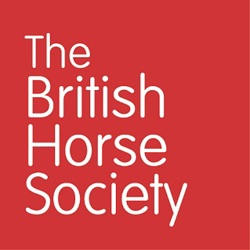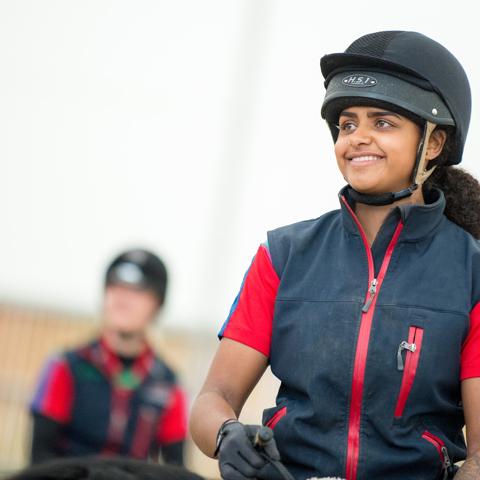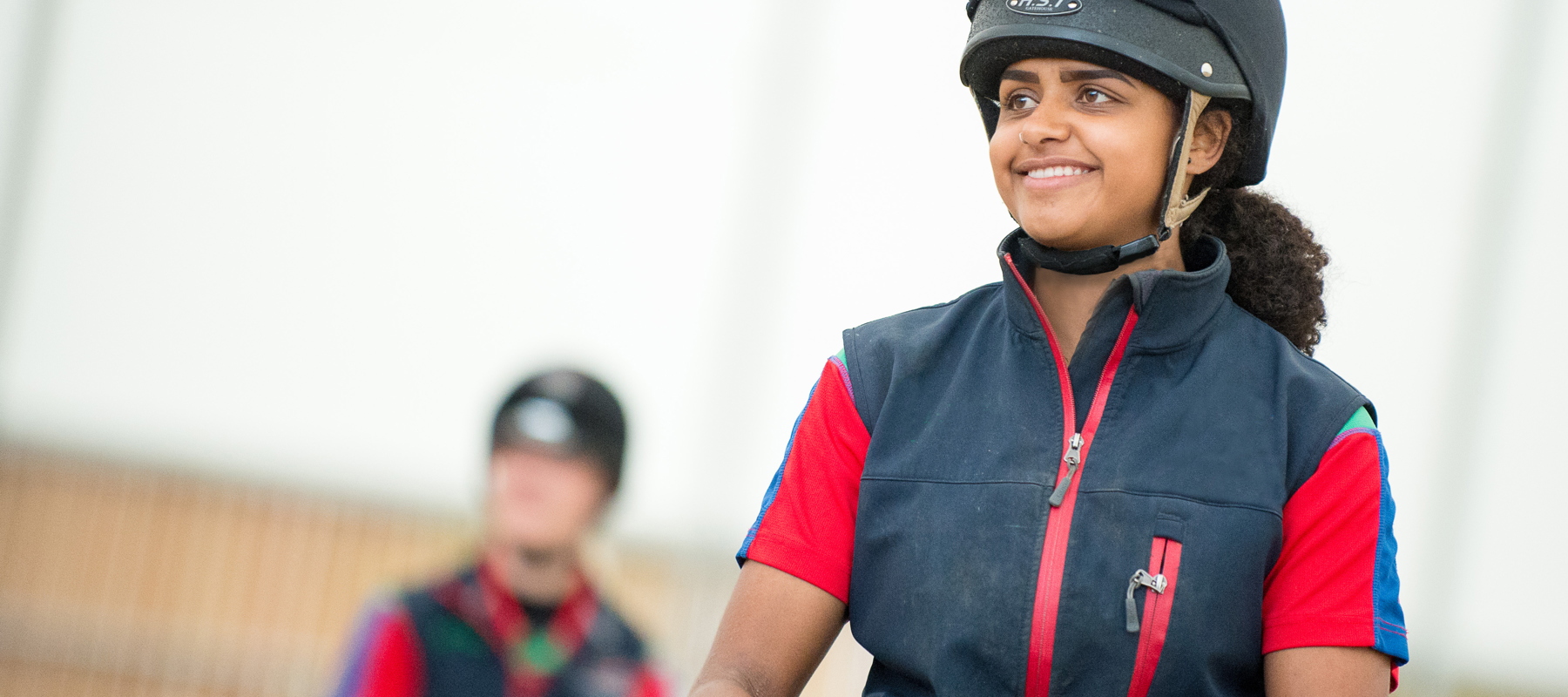Being a trainer can also involve re-educating horses or perhaps working with owners to resolve a particular behavioural issue.
The welfare of the horse will always be at the forefront of your training, with a genuine respect and love for the animal shining through in your methods. Owners will want to feel confident leaving their horses with you so they need to have trust in you as a person and as a trainer.
Your training methods may involve training horses from the ground, under saddle and/or in harness.
You may want to specialise in training horses for a particular discipline, or you could be a trainer that covers all disciplines. If you aspire to train horses for racing, see our careers in racing section.
A career as a trainer opens up opportunities to run your own business, whether you are freelance and go to owners’ yards or you run your own yard where you can breed, back and train horses for selling or take in horses for a backing, training or schooling period. If you don’t fancy being self-employed, you could work for a large riding school or yard. There will also be opportunities to work at yards that specialise in rehabilitation.
How to become a trainer
The recommended qualifications will depend or whether you plan to deliver training purely from the ground or through a combination of groundwork and ridden training. The majority of established trainers have ridden to a senior level and can use their ridden technique to develop and enhance a horse’s way of going and development.
A good trainer will also have an in-depth knowledge of behaviour, nutrition, fitness, anatomy and physiology, common injuries and ailments, and business and yard management. The BHS Groom with Riding Pathway will provide you with the qualifications to understand and apply the scales of training for a horse, show an understanding of a horse’s performance and evaluate their way of going. The full set of qualifications will see you riding different types of horses, young, green and accomplished.
Experience at a variety of yards, handling a range of horses, is a must. We also recommend shadowing other trainers and familiarising yourself with varying methods and practices.
We suggest you aim for Stage 4 level as a minimum and aim to achieve BHSQ Stage 4 Senior Yard Manager with Riding. You will then be confident analysing the conformation of a horse and be able to assess their strengths and weaknesses. You will be assertive handling a variety of horses and have an appreciation for different types of tack, bits and equipment.
As a qualified trainer, you should be prepared to continually advance your techniques through workshops, continuous professional development and the use of an Accredited Professional Coach.
Benefits
- Career opportunities to be self-employed
- A great career if you enjoy working as a collaborative team to develop a horse’s potential. Training can often involve various elements putting the trainer central to a multi-stakeholder equine environment
- Travel! Trainers will often be requested to join competition horses at events worldwide
Hear from trainer Lindsay McCallum
"My main responsibilities include backing and producing young horses to excel in a range of competitive disciplines; schooling for progression or re-schooling to resolve problems in a wide variety of horses; training horses through their competitive careers or training and competing horses prior to sale.
I also teach most of the owners of horses that I have been sent to produce or school – if the intention is for the horse to return to its owners, they need to understand the training process and how they can continue the work.
I rent a yard currently but the dream would be to own my own yard producing quality young performance horses while still taking horses in to back, school or compete.
I grew up at a local BHS riding school, working for rides. As a teenager, I was then guided to take the next steps by training at Ingestre Stables as often as I could get there. This allowed me to progress my experience of producing young horses, riding competitively, and receiving support through my higher level exams. The best part is that I still have support and training from Rob, Andrew and Tim at Ingestre now, and I have every intention to keep learning and improving to take my Fellowship.
The BHS system is a universally recognisable standard of quality. As soon as I tell owners, clients or employers about my qualifications, they are reassured of the skill, knowledge and experience that I must have attained. As someone so passionate about horses, I consider it an honour to be entrusted with the care and education of another person’s pride and joy – I wouldn’t have the same confidence in delivering first class results every time without my BHS qualifications. "


